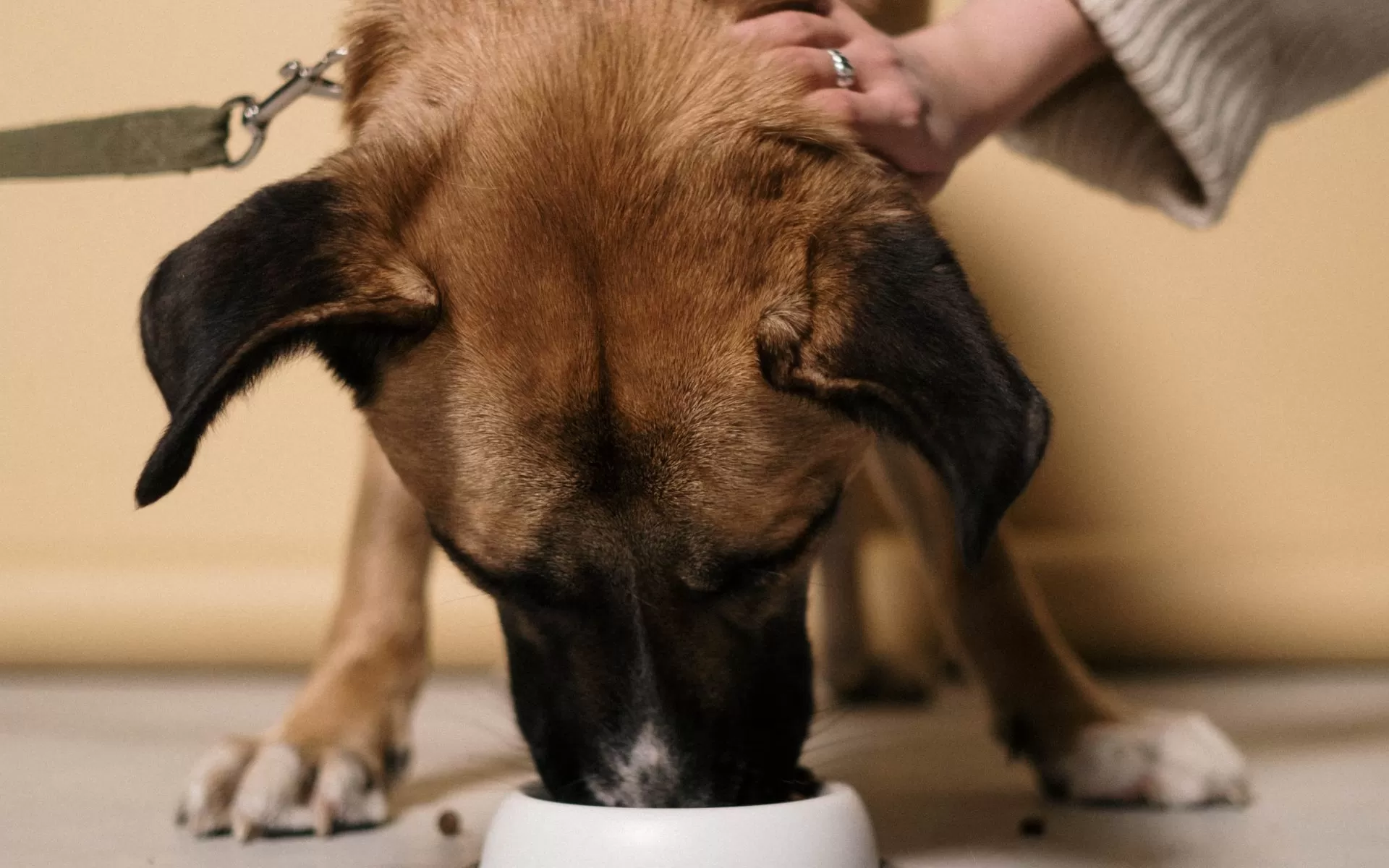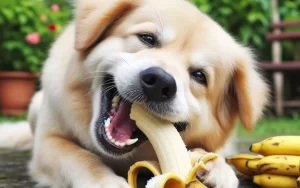The Best Fluffy Pancakes recipe you will fall in love with. Full of tips and tricks to help you make the best pancakes.
My dog got sick of his food and I don’t know what to do. We know… refusal can be quite frustrating and even generate doubts about your dog’s health and well-being. But do not worry!

In this guide, you will see the 13 main reasons behind your dog got sick of his food, and try to understand this behavior and find practical solutions to get your dog to eat normally again.
My dog got sick of his food: it may be withered
If your dog gets sick of his food, one of the first things you should look at is the consistency and texture of the food.
Food can often go stale quickly and this can be a factor in your dog refusing it.
To prevent this from happening, store properly and avoid leaving the package open or in places with high sunlight or humidity.
In addition to wilting, it is possible that the food could also become contaminated with external agents and make your dog sick.
Did the dog get sick of his food, or does he have health problems or pain?
If your dog is sick, it is very likely that he will refuse to eat. In this case, it is advisable to take him to the veterinarian so that he can make the appropriate diagnosis and recommend the best treatment.
This way, your dog will eat again and get rid of the health problem!
Did the dog get sick of his food, or is there a lack of routine in eating?
If routine is essential for humans, it would also be essential for dogs. To prevent dog getting sick of his food, he needs to understand that there are times for sleeping, eating and even playing.
Without an established feeding routine, it is quite likely that he will not only get sick of the food, but may also become sick or have another health problem due to not eating.
The dog got sick of his food because he eats human food
While it’s tempting to share our meals with our furry friends, it can lead to dog getting sick of his food. Rice, beans, and meat might seem like a simple transition, but for dogs, a sudden change can be disruptive.
Then, when they lose interest in their usual food, we might think they’re just picky eaters, right? (Laughter)
The truth is, their taste buds have adjusted to a specific diet. When hunger hits, that familiar food becomes the most appealing option. So, it’s best to stick with their regular meals to avoid any unwanted confusion.
Dog got sick of his food or he has too many snacks
Your dog got sick of his food or he has access to too many snacks and treats? Snacks are great for dogs, especially during training. It is a way of providing positive reinforcement so that he has a certain type of attitude or reaction.
However, in excess, they can have the opposite effect: your dog will start to see the treat as food, and not as a reward for a positive act.
If your dog got sick of his food is because he is eating a lot of snacks or your family tends to please him with this type of food, your dog will not be hungry to eat the food.
If this is the situation, talk to your family and explain the importance of giving treats when the dog responds positively to a command or situation.
Dog got sick of his food or the food is of poor quality or tasteless

In general, low-quality foods have few nutrients and this can directly affect the dog’s health and disposition.
So, if your dog gets sick of the food and before buying another brand of food, check the composition of the food.
You can also look for specific feeds, according to the animal’s sex, weight, age and even life stage.
All these criteria must be considered because each industry or food company has different types of preparation and addition of nutrients.
Always look for the best for your companion dog!
Location and height of the feeder
If we like to eat in a quiet place and feel uncomfortable with tables that are too high or chairs that are too low, imagine your dog.
Feeders that are too high can make access to food difficult, especially if your dog is older.
Low feeders or those placed on the floor can also be harmful to the animal’s spine.
Always leave the food plate away from unhygienic places with high foot traffic. The place must be calm, so that he can eat without experiencing extra stimuli.
If you’ve changed the meal location, don’t worry: it will take time for your dog to get used to the new location.
Here are some tips you can apply at home if your dog gets sick of their food:
- Do not leave the feeder and water fountain close to the places where he relieves himself, such as toilet mats;
- Don’t leave the pots in places where people pass by frequently;
- Leave the feeder in the shade, away from direct sun;
- If you have more dogs, distribute the feeders in different rooms.
Lack of feeder hygiene
We don’t eat from dirty plates, why should your dog eat from a filthy plate?
After meals, it is recommended to clean it immediately. This routine will eliminate food residues, in addition to avoiding possible food contamination and infections.
Distractions in the environment
Many strange or unknown people, large parties held at home can give the impression that the dog is sick of the food.
To avoid this, in addition to creating a feeding routine, remember that the place chosen for him to eat must be calm.
Dog got sick of the food or is it the climate and temperature?
Very hot days can completely eliminate your dog’s hunger, but increase the animal’s thirst. The same can happen in cold weather.
If the situation is happening on very hot days, don’t worry: offer plenty of clean, fresh water to keep him hydrated.
If the dog gets sick of the food, you can also buy wet food, which is sold in sachets, and which can complement the daily diet.
Another alternative is to make popsicles with food, such as ground meat or other food that your dog can eat.
Little variation in feed over time
Again: we humans tend to get sick of food easily, the same thing happens with dogs! If your dog gets sick of the food, it may be time to change brands.
There are no specific recommendations, but if your dog gets sick of the food, you can change it every month or even every six months.
When making the change, do it gradually, offering the new food little by little so that it can adapt its taste.
You can even mix both in the same dish. Gradually increase the proportion of the new food, until he notices no difference and starts eating the new brand completely.
Stress and/or anxiety
Stress and/or anxiety can also make your dog sick of his food or lose his appetite. Under these conditions, the animal’s attention is focused on other situations.
To avoid it, have a healthy routine: go for walks, play with him and pay attention. Establish routines and feeding times.
If you work outside the home and your dog is alone, consider hiring pet daycare services. This will prevent him from feeling down or sad.
It is also possible to hire the services of a trainer.
Some different smell in the environment
Different odors and smells in the environment can also make your dog sick of the food.
Try to identify what the smell is and where it comes from to eliminate it from the environment. Especially if this odor directly affects the place where it feeds.
When cleaning your home, choose products that do not have strong odors that could make it difficult for your dog to eat.
Also check if they are suitable for animals, as some can cause allergies and other injuries.
Faq
Why might your dog refuse to eat his food?
Your dog might refuse to eat his food due to various reasons, including staleness, health issues, lack of routine, or stress.
What is one of the first things to consider if your dog refuses his food?
One of the first things to consider if your dog refuses his food is the consistency and texture of the food, as it may have gone stale or become contaminated.
How can lack of routine affect a dog’s eating habits?
Lack of routine in eating can lead to your dog not only refusing his food but also experiencing other health problems due to irregular eating habits.
What role do snacks play in a dog’s diet, and how can they affect his appetite?
While snacks can be a positive reinforcement for dogs, excessive consumption can lead to your dog seeing them as food rather than treats, resulting in a decreased appetite for his regular meals.
What should you consider before changing your dog’s food brand?
Before changing your dog’s food brand, it’s essential to check the composition of the food and consider factors such as your dog’s age, weight, and health condition. Additionally, any changes should be introduced gradually to allow your dog to adapt to the new taste and texture of the food.
like this content? stay on our site and read more about dogs!







